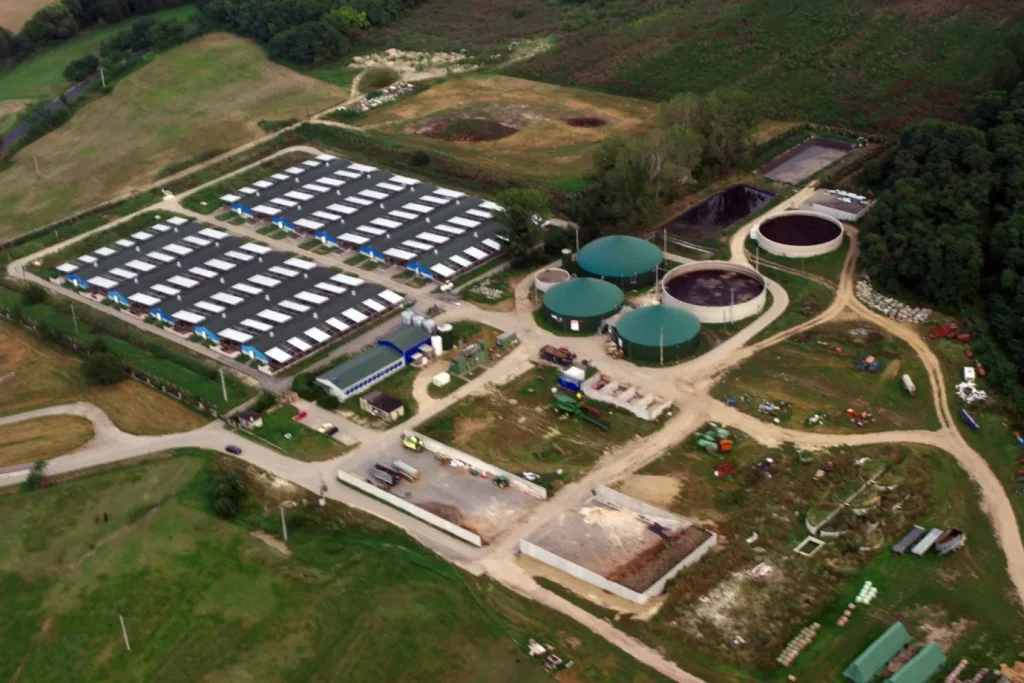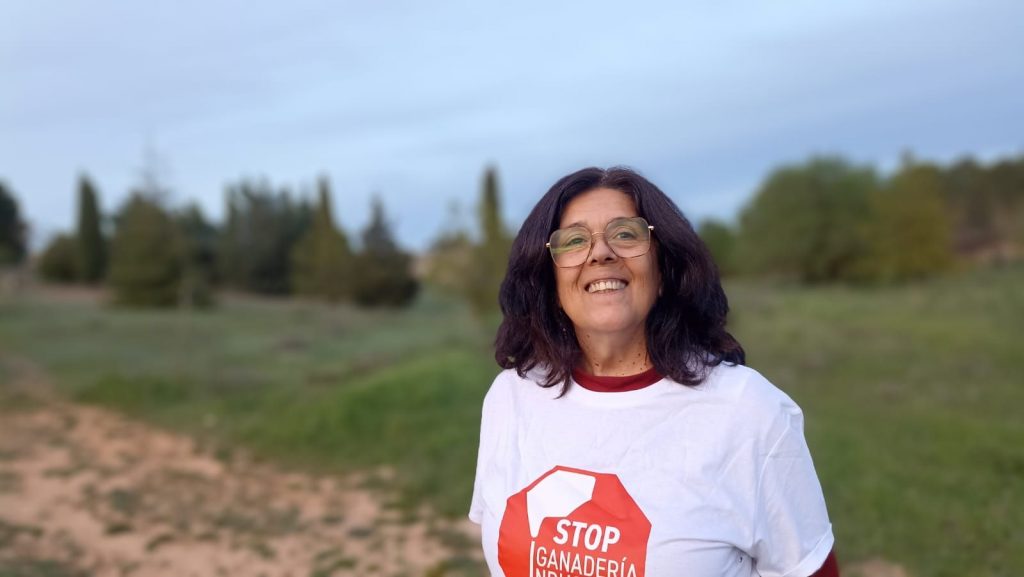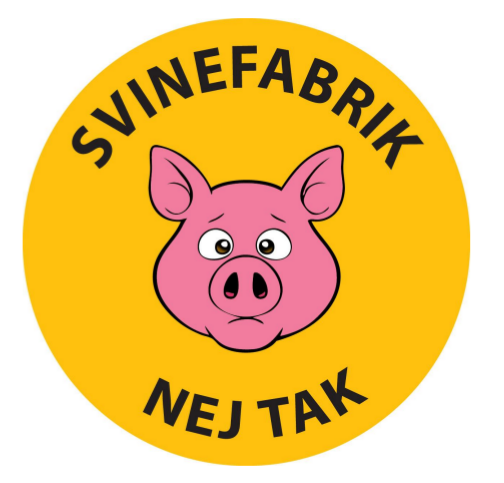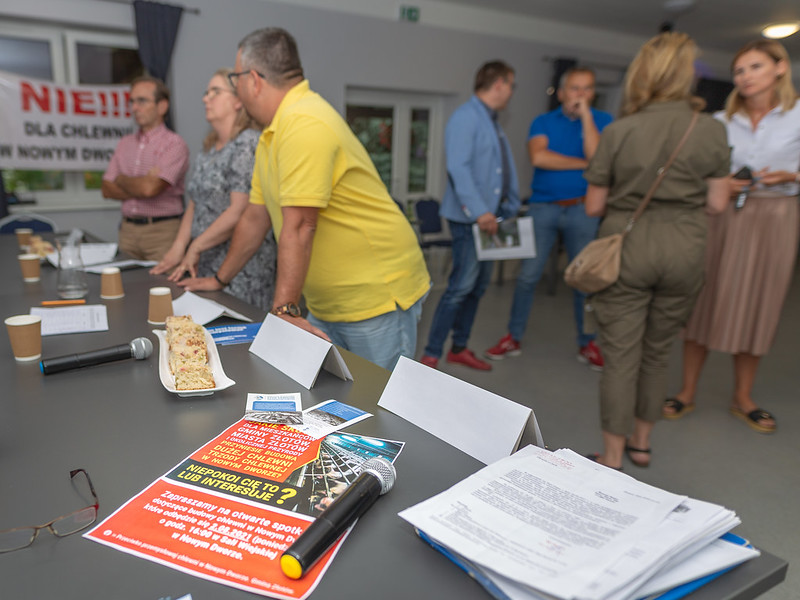Over the past few decades, Europe’s food system has become increasingly dominated by animal factories, confining tens of thousands of animals into crowded, tightly packed industrial facilities. The impacts of this industrial form of animal production strongly affect rural areas and communities living close to the installations. Those impacts range from soil, air and water pollution, higher antibiotics resistance, to constant smell and traffic.
Small-scale animal farmers struggle to survive faced with an industrial meat production taking over the countryside for hefty profits. Luckily, a movement for better food and farming is growing across the continent, demanding local communities and small-scale farmers be given the power and resources to produce and distribute food sustainably.
We are excited to launch a new series of testimonies and portraits from across Europe, highlighting the courageous efforts of local communities and activists resisting the harmful impacts of animal factories. This series aims to help shed light on the challenges and victories of those on the front lines, fighting for nature protection, animal welfare and healthy rural communities. These local struggles, as also underscored in a recent Guardian article on the hidden grip of factory farming across Europe, reveal the far-reaching consequences of industrial agriculture and the strength of grassroots resistance.
The industrial agricultural practices dominating Europe’s food system not only harm local communities but also have far-reaching consequences for communities outside Europe, as highlighted by our friends in Colombia and Indonesia. As we explore the local struggles against animal factories, it’s also essential to recognise how European consumption patterns contribute to environmental degradation and social injustices for communities in the Global South.
Testimony highlights
Our series focuses on 5 compelling case studies from Hungary, Northern Ireland, Spain, Denmark and Poland that illustrate the challenges and successes experienced by communities resisting animal factories. By sharing these testimonies, we hope to raise awareness on the current expansion of industrial farming and its impacts, offer insights into effective strategies and actions that have led to victories or lessons learned from setbacks, and promote collective learning and solidarity among communities facing similar struggles.
1. Kisbér, Hungary: Facing the wind
In Kisbér, a small village in Hungary, residents have been grappling with pollution from a biogas plant and pig farm located just 800 meters from their homes. Despite initial promises of minimal environmental impact, the plant has caused severe odour problems and pollution. The local community has been actively fighting for justice, including filing lawsuits and gathering public support. Their journey reveals the challenges of dealing with local authorities and regulatory shortcomings. Read the full testimony here.

2. Limavady, Northern Ireland: Defending a family farm
In Limavady, Northern Ireland, a proposed expansion of a large pig factory threatened a family’s small goat farm. The family’s fight against this expansion highlights the difficulties of navigating complex planning processes and mobilising community support. Through persistent efforts and collective action, they were able to withdraw the application for the largest factory. This case shows the importance of community engagement and strategic advocacy. Read the full testimony here.
3. Mota del Cuervo, Spain: the power of local organising
In Mota del Cuervo, Spain, Remedios Bobillo, known as Reme, began her activism in 2018 after a pig factory was proposed in her village. Fearing the factory’s expansion to 7,200 pigs and its potential contamination of the local water supply, Reme rallied her community and successfully stopped the project. Her activism grew as she joined provincial and national movements, helping unite communities across Spain to fight against factory farming. Reme’s leadership demonstrates the power of local organising and the strength of collective action. Read the full testimony here.

4. Zealand, Denmark: Fighting for clean air and rural life
In rural Zealand, Denmark, Susanne, a retired teacher, has been fighting the harmful effects of a nearby pig factory for years. Located just 100 meters from her home, the factory emits toxic substances and produces an unbearable stench that disrupts daily life and damages the community’s health. Despite filing numerous complaints, local authorities have been slow to act, prioritising the pig industry over public well-being. Susanne’s activism, though met with resistance, has connected her with others facing similar struggles. She continues to push for stronger environmental regulations and greater accountability for industrial installations. Read the full testimony here.

5. Nowy Dwór, Poland: a case to defeat an expanding animal factory
In Nowy Dwór, residents confronted the expansion of a pig farm already housing 2,000 animals, causing severe odours, pollution and health risks. When plans for an additional facility for 1,920 pigs emerged, the community united and sought help from the EFFATA Association. Over three years, they combined grassroots activism, legal proceedings, and scientific evidence to successfully halt the project. Read the full testimony here.

Policy recommendations
These testimonies represent just a few of the thousands affected communities across Europe resisting animal factories. Their voices show the urgent need to stop the expansion of factory farming, which has become of powerful force under the control of multinational corporations, exploiting food and farming for their own profit. The corporate capture of food and farming markets, the concentration and industrialisation of farming must end, and a shift away from factory farming is essential to pave the way for more sustainable alternatives.
Banning factory farming and reducing the number of intensively farmed animals in the EU are crucial steps to create this space. This shift requires a radical transformation in how we produce, distribute and consume our food, with agroecology at the heart of this transition. Agroecology promotes local knowledge and natural resources – including traditional livestock breeds and seed varieties -, reducing reliance on external inputs like commercial seed, agrochemicals, antibiotics, and imported animal feed linked to deforestation.
Policy makers at both the national and European levels must act urgently to regulate factory farming. This includes imposing a ban on new and expanding factory farms, and phasing out existing ones by 2040 to support a healthier, more caring and sustainable food system.

This publication is co-funded by the European Union. Views and opinions expressed are however those of the author(s) only and do not necessarily reflect those of the European Union or CINEA. Neither the European Union nor the granting authority can be held responsible for them







